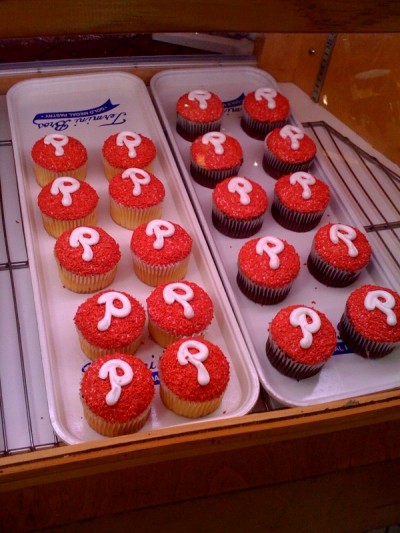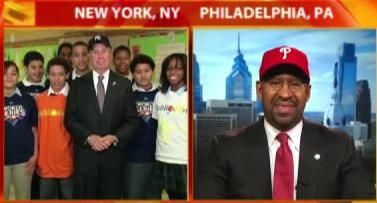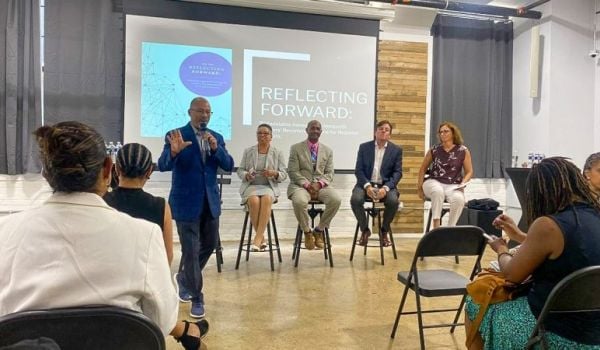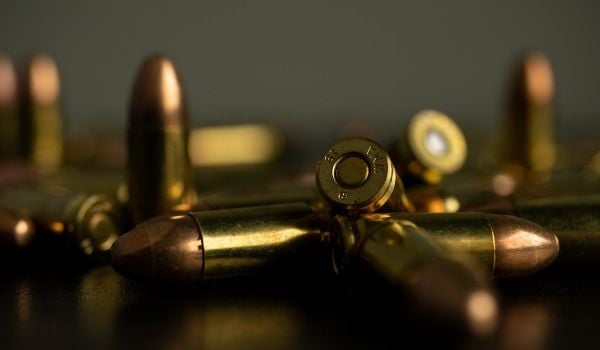There’s some serious Phillies pride in the city. Everywhere you go, there’s people wearing their red jerseys. Store windows have posters of Phillies’ encouragement. Even construction sites have some kind of Phillies-related memorabilia on them. We know what the team means to the city — just about everything at this point. But what does it do for it?

Cupcakes I spotted at Reading Terminal Market.
Last year, when the Phillies won the World Series, the city paid $700,000 for a parade down Broad Street. (Corporate sponsors paid another $300,000.) Nutter said that the expense was worth it and that the city reaps $1.5 million in tax revenues from hosting the World Series. But just a few weeks later, the mayor was in a contentious debate about closing libraries, saying the city couldn’t afford to keep them open.
Money isn’t isn’t the issue — I mean, could the Phillies have won the World Series and not had a parade? No, not having a parade wasn’t an option. It’s an understatement to say that the Phillies bring an intangible amount of interest and excitement to the city. Last year, amid much of the talk about the World Series was analysis of the Philadelphia psyche — how fans “had to believe” but in many ways kept their expectations in check. This year there’s confidence, a secular faith in the team, less a sense of superstition. You couldn’t even call the Phillies underdogs any more.

Mayors Bloomberg and Nutter face off on Good Morning America.
But does a winning team translate to a winning city? When the Phillies clinched the pennant, the New York Times wrote about Philadelphia first before they got to Jimmy Rollins: “The paradigm has shifted. A city haunted by failure revels in glory.”
We are reveling, but are we glorious yet?

Diana Lind is the former executive director and editor in chief of Next City.















